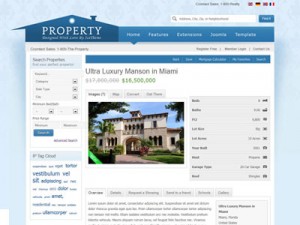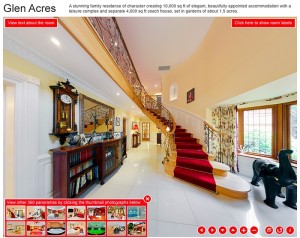We are half-way through 2014, and we’ve already witnessed emerging and concurrent digital marketing trends. The local property industry is not an exemption. If you haven’t maximized these trends yet, now is the perfect time to catch up.
1) Developing property portals
 The global real estate sector is expanding exponentially, thanks to technology. There’s a fit since homebuyers are turning to Google to shop for a new home. Property portals are a great way to find your residential projects as well as industrial, commercial and leisure projects.
The global real estate sector is expanding exponentially, thanks to technology. There’s a fit since homebuyers are turning to Google to shop for a new home. Property portals are a great way to find your residential projects as well as industrial, commercial and leisure projects.
MUST DO: Increase the findability of your projects and properties by having your own website
2) Presenting critical information
For some real property developers, they preferred to separate the corporate site from their broker’s sites where most of the for-sale properties are found. Information must be shared to the prospects especially since most prospects favor developers and brokers who are willing to disclose project details.
MUST DO: Provide all the pertinent details that a prospect needs through the website
Thereby, for the first two trends, buyers consider portals as important communication touch points. This is especially true for an industry where the prospects do not expect themselves to do all the legwork. Information including the price list, exact locations, amenities, facilities, layouts, etc. must be readily available.
3) Tapping the sales funnel
Due to technological advancements also, we are seeing a digital form of sales cycle. This requires the real estate companies to create and maintain their own buyer’s list. Customer relationship management (CRM) is now automated so that the database can be properly managed. This allows the staffs and brokers to organize and connect with the buyers who are already in the pipeline.
MUST DO: Connect with the buyers proactively through digital communications so they may eventually perform an informed decision-making
4) Creating online perception
The role of the traditional media for property advertising diminished with the introduction of digital marketing. Projects are perceived differently from one another despite having the same developer. Regardless of the nature of the project though (e.g. township, residential communities, etc.), online is the main touch point of the developers.
MUST DO: Simplify the branding message in a way that emotional connection will remain intact
5) Outsourcing the creative
 Like physical marketing collaterals, their digital counterparts are also important. Designing a portal, for instance, requires an expert. Consistency in the creative aspect of the campaign is a must so the desired branding will remain consistent as well. If there is no creative team in-house, outsourcing is the next best option.
Like physical marketing collaterals, their digital counterparts are also important. Designing a portal, for instance, requires an expert. Consistency in the creative aspect of the campaign is a must so the desired branding will remain consistent as well. If there is no creative team in-house, outsourcing is the next best option.
MUST DO: Allocate resources to the development of digital marketing collaterals
6) Creating a buzz
Differentiation is the key, thus developers are looking for unique ways to stand out. No, we are not talking about the current double title scandal that presently haunts developers and buyers alike. Not that kind of buzz although the goal is to capture the prospects’ attention. Perhaps, an online open house or a project virtual tour will do.
MUST DO: Think of tactics so the brand will be the talk of the town
7) Boosting referral marketing
Prospects not only researches for the projects online. They also share their plans and ask for the opinions, comments and suggestions of their friends online. Sharing details and images of the prospect property are a common practice which, in itself, is the best marketing tool wherein the project speaks for itself. The property developers can actually track the discussions about the project through some tools.
MUST DO: Put sharing options on the website and use tags to track mentions of the brand, projects and properties
8) Strengthening the social presence
Not only for the developers, but also for the individual agents who are selectively using the appropriate medium to communicate with the prospects. Most developers regard Pinterest as their digital storefront. Brokers, on the other hand, are using Google+ and Facebook to interact with prospects.
MUST DO: Integrate easy-to-locate social media widgets on the website
9) Segmenting prospects geographically
 Real estate marketing campaign’s scope should target an audience by their location. Localization is key, so a property management can reach the potential buyers at the time when they are willing and ready to make a purchase.
Real estate marketing campaign’s scope should target an audience by their location. Localization is key, so a property management can reach the potential buyers at the time when they are willing and ready to make a purchase.
MUST DO: Geo-target the prospects through native advertising without forgetting the overall branding
10) Going mobile
Mobile usage statistics outpaced the expectations of the industries including the real estate industry. People are using their smartphones to search for information and conduct transactions. Mobile had already happened and becoming responsive on all devices is needed more than ever.
MUST DO: Make the website responsive to tap the mobile-first and mobile-only prospects
Trends come and go, but the most effective ones stay. What do you think will be the future of digital marketing for the real property industry? Perhaps, we should stop looking at digital marketing as fragments of marketing approaches. Instead, we should think of it as an overall strategy that can drive property sales in the future.

